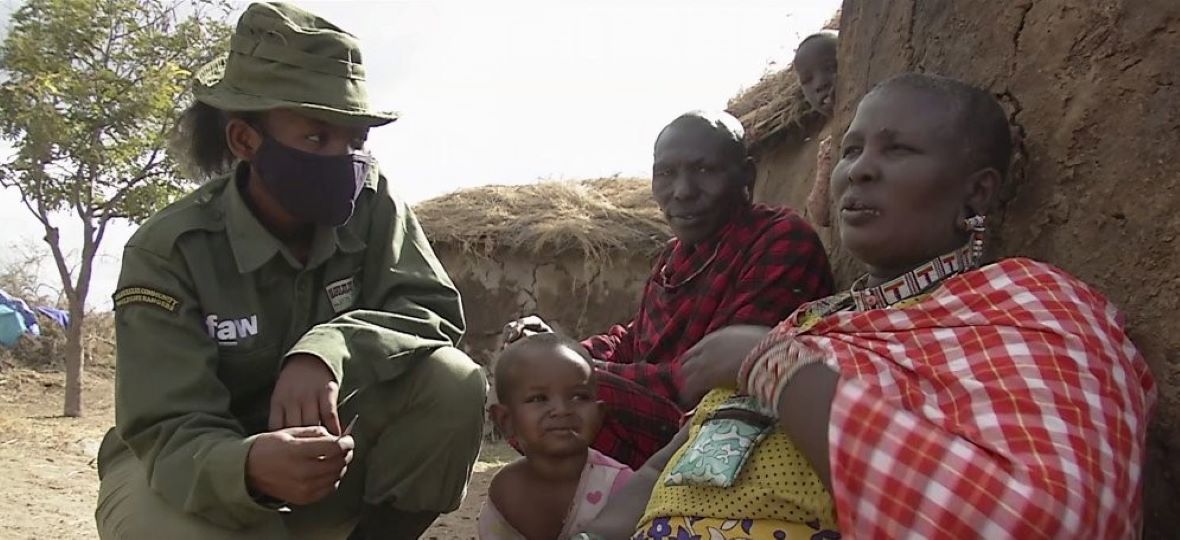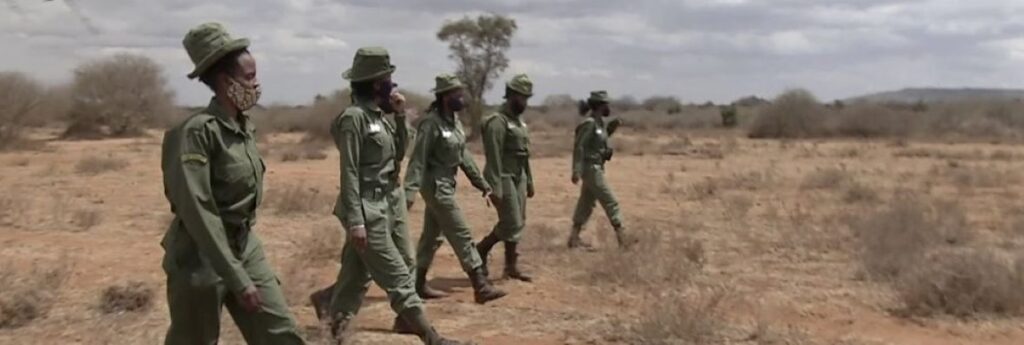“Team Lioness” – a small group of eight ethnic Maasai women – are breaking barriers by defying patriarchal norms that have been passed down for centuries in Kenya by patrolling against poachers instead of doing household chores.
Part of a group of 76 community-based rangers charged with guarding leopards, elephants, giraffe and other wildlife on the sweeping plains of the 147,000-hectare area surrounding Kenya’s Amboseli National Park at the foot of Mount Kilimanjaro, the women say they overcame community resistance to women working outside the home and hope their precedent-setting example will help shift mindsets.
“First, the community believed I will not make it because they believe I am weak. Our work in the community was to give birth and do chores,” says 24-year-old Purity Amleset. “They thought that this is only meant for men so they have been discouraging us … but we told them, ‘No, we will do it and we will make it.’”
The Maasai, who inhabit northern Tanzania and central and southern Kenya, are recognized in much of the world with their red wraps and hair slathered in red ochre. While their warriors no longer have to kill a lion to be considered a man, many other traditions are still in place.
Despite decades of British colonization in the past and growing inclusion in modern economies, the Maasai maintain the practices of pastoralism, child marriages and female genital mutilation.
Amleset said she was lucky that her parents took her to school. “I pity some of the girls from the same community that I came from, they were not taken to school. They were forced to get married while they are too young. At 13 to 15 years of age, they were forced to be mothers while they are not supposed to be mothers at that time.”
Patrick Papatiti, the head of the community rangers for the Olgulului-Ololarashi group ranch surrounding the national park, said the idea for an all-female ranger group gained ground around two years ago when the ranch, owned by the Maasai community, started working with the International Fund for Animal Welfare.
When the idea was floated to the ranch’s leadership “they were a little hesitant, not because they didn’t like it but because they believed the society will not accept it,” Papatiti said.
A significant population in the community felt that women would not be able to do the work, he said. “There was also fear that this project would empower women, and if it’s successful then definitely other perceptions in society can be challenged.”
Despite the initial reluctance, each of the eight Maasai clans after extensive outreach eventually sent representatives to be interviewed for the jobs.
“A few of us who believed in them knew very well with time… that women can do as well as men,” Papatiti said.
He said Team Lioness has exceeded expectations. The women have excelled in intelligence-gathering because they are easily trusted with information and are the best data-collection unit because all have high school educations. “They did not fail us,” he said.
The coronavirus pandemic, however, has shut down the tourism industry in Kenya that provides an income to many Maasai living near the park.
With no source of income, some community members have turned to poaching for bush meat, Papatiti said. Fourteen giraffes have been killed this year.
With rangers typically doing their work on the vast ranch on foot and unarmed, relying on armed government park rangers as backup, that’s just the latest challenge for Team Lioness to overcome.


